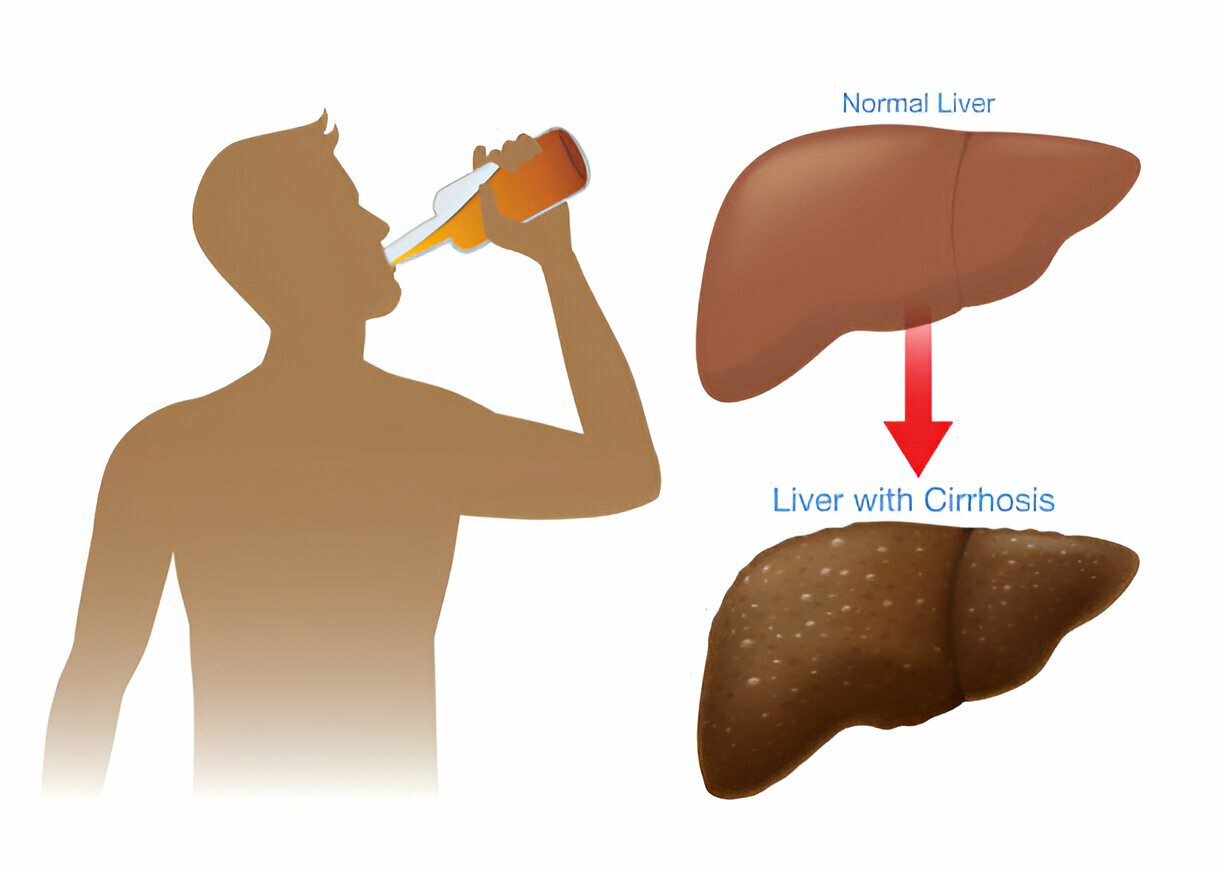
Liver is a vital organ in a human being which is responsible to support metabolism, digestion, detoxification, immunity and others to keep us healthy. However, excess intake of alcohol can be threatening to your liver health, which can cause serious health problems.
Upon the consumption of alcohol, it is absorbed into our bloodstreams and travels to our liver. Here the enzymes help break down the alcohol into byproducts, preparing it to leave the body. But when there is excess intake of alcohol, the liver gets overworked, causing inflammation and damage which is called liver disease.
Most common alcohol-related disease is fatty liver disease, which is caused upon heavy secretion of fats in the liver cells. Over time, if it's not taken care of the condition may deteriorate causing alcoholic hepatitis and cirrhosis, which can be fatal.
Alcohol related diseases come silently, however there can be a few noticeable symptoms as the disease grows, including fatigue, abdominal pain, jaundice and swelling in the legs or abdomen. If these symptoms show, it is advised to get yourself treated as causing delay might worsen the condition resulting in liver failure, which can be life-threatening.
Although alcohol related diseases can be harmful but it is preventable. To reduce the risk of developing liver issues one must make changes in their lifestyle and decrease or limit their alcohol intake. There are professionals who help and support alcohol dependents, to live an alcohol-free life.
Excess alcohol consumption can have harmful effects on the daily lifestyle of a person causing life threats. So by understanding the alcohol-liver relationship, make choices which can protect your liver health and well-being.
The liver is our body’s complex organ, it works to help normal functioning of the body which is necessary for maintaining overall health and well-being. From storing nutrients to removing toxins and maintaining metabolism, the liver plays a huge role in keeping our body’s functioning normal. The liver is composed of lobules, containing areas with blood vessels, ducts and intervening cords of liver cells.
The liver is a large, triangular-shaped organ. Liver is the largest internal organ in the human body and second largest organ overall ( first is the skin ). It is the heaviest internal organ as
well, weighing about 1.5 kilograms. The liver is located in the upper right abdomen, just below the diaphragm and behind the ribs. The liver has two blood supplies : the hepatic artery, which brings blood from the heart and the hepatic portal vein, which brings all blood from the intestines.
Maintaining a healthy liver is essential for overall health. A well functioning liver helps regulate metabolism, detoxify the body, and support immune function. Although poor life choices, toxins and medical conditions can disturb liver function and lead to liver disease. Liver health is important for proper functioning of the body. So these are some important tips for maintaining liver health ;
In conclusion, the liver is a multi purpose organ that manages various body functions for maintaining overall health and well-being. By practicing a healthy lifestyle, such as eating healthy, regular exercise, alcohol consumption and staying hydrated, you can support liver health and reduce the risk of liver diseases.